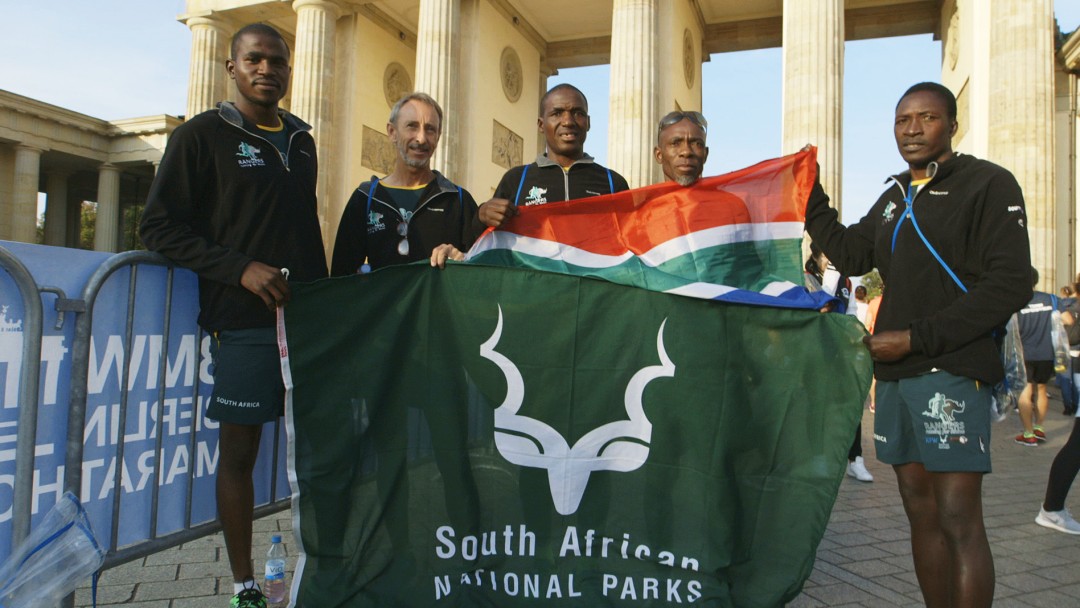News from 2016-09-29 / KfW Development Bank
Running for the rhinos
South African rangers ran the Berlin Marathon with KfW's support
There are still several thousand rhinos living in South Africa but their existence is endangered. The animals' horns fetch a high price on the global market. Rangers protect the lives of wild animals with their own. More than a thousand rangers have been killed since 2003. An organised mafia is involved in poaching, and also uses weapons against people.
Some of the rangers take part in international sporting events in order to raise awareness of the hard work they do. "In our tough job, running is a great way to set a goal and achieve it," said Running for Rangers founder Bruce Leslie. "This shows us that dreams can come true". He recently completed the Berlin Marathon with four of his colleagues who cannot be named on account of the risks associated with their work. Their participation was made possible by support from KfW, the organisation "Stop Rhino Poaching" and the honorary rangers of the South African National Parks (SANParks).
"We are excited and grateful to be able to take part in the marathon," said the rangers from Kruger National Park, who are not only visiting Europe for the first time but have also taken their first ever flight in an aeroplane. In Berlin they showed a high level of sporting commitment, with the fastest of them crossing the finish line in under three hours.
Bruce Leslie has been working for Kruger National Park for more than 21 years. "I have never seen such a massive increase in poaching as we have had in recent years," he said. Poachers kill about 730 rhinos every year, and Kruger National Park has lost 460 between January and August 2016 alone. "But we are constantly getting better at what we do: we are able to follow tracks better, our dogs are better trained and the management is also much more effective." The success rate of poachers' attacks has fallen from one in two to one in five. However, poachers are increasingly trying to kill the rhinos they target. "We need motivated rangers in order to protect our global natural heritage," Bruce stressed. "The job is physically and mentally demanding. We have to work in temperatures of up to 42 degrees centigrade, sometimes 24 hours a day."
He also teaches at the Southern African Wildlife College, which KfW also promotes on behalf of the German federal government. The college provides rangers with specialist knowledge and practical skills, such as tracking, first aid, conflict resolution and how to handle weapons properly, to enable them to combat poachers efficiently. This is where many rangers complete their first formal training, which at the same time opens up opportunities for personal advancement to them.
"The work the rangers do is very hazardous. They should know that Germany appreciates their efforts. We are happy that they were able to take part in the Berlin Marathon," said Nils Meyer, a Project Manager for KfW with responsibility for environmental issues in South Africa. KfW also protects wild animals in Africa on behalf of the German federal government, by providing financial support to the KAZA National Park, the world's largest cross-border conservation area.



Share page
To share the content of this page with your network, click on one of the icons below.
Note on data protection: When you share content, your personal data is transferred to the selected network.
Data protection
Alternatively, you can also copy the short link: https://www.kfw-entwicklungsbank.de/s/enzBWrMC.BcWA
Copy link Link copied